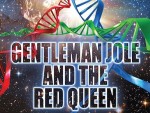 GR: Goodreads member Wendy asks whether you have considered a book that features the next generation?
GR: Goodreads member Wendy asks whether you have considered a book that features the next generation?
LMB: Not at this time.
GR: You deal with social justice issues in a lot of your work. Goodreads member Becca asks how new perspectives on social justice issues (particularly gender and sexuality) have affected the worlds you describe in your writing? In particular, how have they affected Beta Colony and Cordelia?
LMB: It’s a little hard to figure out how to answer that question. These books were written over a 30-year span, and each one is now fixed like an insect in amber. Whatever new perspectives may arise in our world, these pieces of art are finished. Current events cannot affect them because time does not run backward. How the old stories will be received by new readers going forward will surely shift, but that’s not under my control.
GR: Tell us about your writing process.
LMB: My writing process has evolved over the years as my context has changed. I began writing in pencil in a spiral notebook, retyped on my old college report typewriter; advanced to a three-ring binder; acquired my first computer (it had a cassette-tape drive); traded up to my second computer; the Internet was invented, and so on. Small children grew to large children, we moved to a new state, kids moved out, back, out again, career-maintenance chores multiplied, and so on. A couple of aspects have persisted over the years.
“Making it up” and “writing it down” remain two different phases for me. I still capture the ideas for a story or a scene in penciled notes, as an organizational and memory aid. These could be thought of as a very rough draft or as a (quite mutable) outline. But in thoughts and visualizations (walking is good for this) and in pencil on paper is where I munge things around till they seem to work. Only then do I take the notes to the computer and bang out the first typed draft, usually in scene-sized units. One such bite at a time, chew well, swallow, making room for the next scene to form. Each scene written alters the ideas for what could come next, sometimes by a lot, sometimes by very little. Lather, rinse, pause to whine at my test readers, repeat until the tale is told.
Formerly, as I went along I would print out each chapter and put it in a binder, freezing it till a final edit. Lately I’ve switched to working paperless. It hasn’t made the process any faster — “thinking it up” is still the main bottleneck — but I find I do more micro-editing.
GR: What books have inspired or influenced you as a writer?
LMB: The books and writers who have the most impact are inevitably those one reads first, at a young age. In science fiction and fantasy, they were mostly the books I could find in school and public libraries in the 1960s, thus a trifle out of date for the modern reader. Not necessarily the most famous, but the writers whose stories got into my head and took root include: Poul Anderson, Cordwainer Smith, Randall Garrett, Lloyd Biggle, Jr., L. Sprague de Camp with Fletcher Pratt, Zenna Henderson, Roger Zelazny, Fritz Leiber, Anne McCaffrey, and James H. Schmitz. Outside F&SF I could name Arthur Conan Doyle, Georgette Heyer, Rudyard Kipling, Dorothy Sayers, and Alexander Dumas. I read, and still read, piles of nonfiction, of course, but that tends to be memorable for the subject matter rather than the author.




